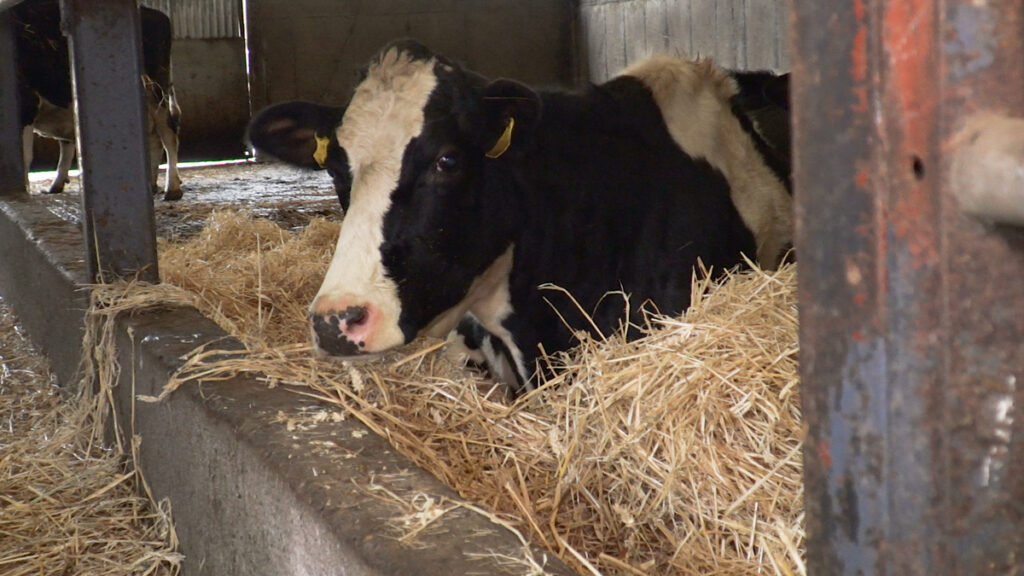Having good structures and procedures in place can go a long way towards making calving season easier on farmers – particularly later in the season when fatigue may start to set in.
AgriLand recently visited Jim Mulhall, who milks 200 cows on his dairy farm near Kilkenny city to find out what best practice advice he would give young farmers and new entrants.
Appearing on the latest episode of FarmLand, Jim highlighted the need to keep a close eye on cows nearing their calving date and ensuring that cows are in good cubicles and later clean straw pen facilities.
“When we get into peak calving you just have to be disciplined to make sure that you focus on getting the cows calved, getting the calves fed as quick as you can and just have good structures in place – and just good protocols.”
These would include: getting the cow calved, getting the beestings into the calf and ensuring a good supply of beestings available, he said.
“We had issues there a few years ago – we had a lot of pneumonia issues – we actually traced it back.
“Our vet came out and did a whole appraisal, and he just traced it back to not enough beestings. We have a bottle there and it holds 2.5L and we were feeding the calf the whole of that.
“But, because we’ve a Holstein-type cow, they tell me that you need to be putting at least 3L of that beestings into a calf. The milk from that cow, the beestings quality, it’s not as good.”
Underlining the ‘3-2-1’ rule, the dairy farmer explained: “Get 3L in in the first two hours and make sure it’s first milk.
Make sure calf feeding is as easy, as practical and as fast as you can; because that’s where a lot of time is lost, feeding calves.
“So I think that’s very important. Get your calving facilities, have a plan. Where are you going to put those calves when those calves are born?”
Farmer fatigue
Turning to the topic of fatigue hitting farmers later in the calving season, Jim said that, when monitoring cows – and heifers in particular – farmers are constantly checking cameras, leading to broken sleep.
“I think the important thing is to eat well and, if you get an opportunity to get some sleep, take it.
Even if you’re finished in the evening time and you know when you’re finished the jobs, whatever time that may be.
“Take a walk through the sheds; if there’s nothing going to calve for three or four hours, in your view, go in and get a bit of sleep.
“That’s what we do here – just go to bed for a couple of hours. Don’t even sleep in the chair – just get a bit of sleep,” he concluded.

